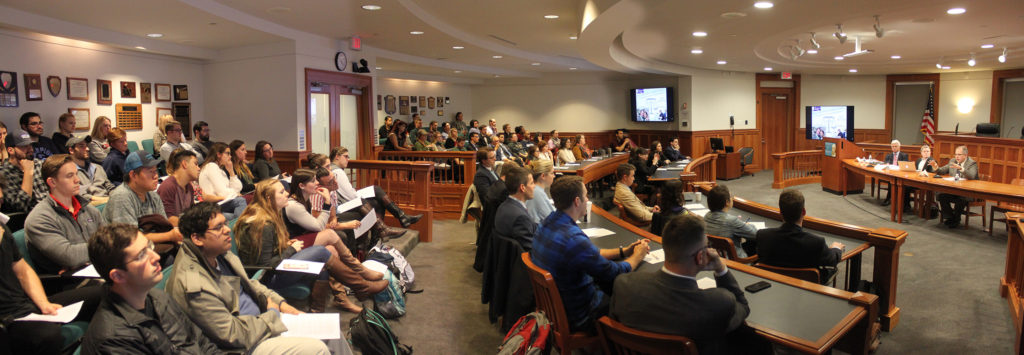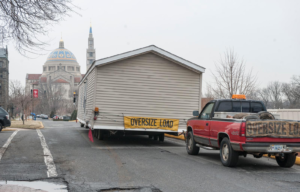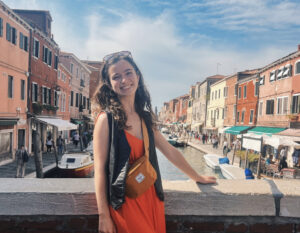Federalist Society Event Discusses Upcoming Supreme Court Case

The case was debated in a packed Slowinski Courtoom in Catholic’s law School. Courtesy of Federalist Society

By Emily Prendergast
On Friday, November 9th, CUA Law Federalist Society hosted a panel discussion on the upcoming Supreme Court case regarding the Masterpiece Cakeshop dispute. The two debaters were Jordan Lorence, senior counsel with Alliance Defending Freedom (ADF), and Amanda Shanor of the American Civil Liberties Union (ACLU), and was moderated by Professor Robert Destro, from Catholic University Law. The event was held to promote an open dialogue between two opposing viewpoints in order to provide the audience with a better understanding of the case.
Lorence represented the side of Masterpiece Cakeshop and Jack Phillips, and Shanor represented the couple, Charlie Craig and David Mullins. Both parties were very informative during their time speaking so as to make sure that the attendees understood the terminology and references to other cases that were used. The event was attended by undergraduate, graduate, and law students who seemed responsive to both sides of the case.
Alex Filiault, the undergraduate advisor for the executive board of the Federalist Society stated, “I thought that the event was an awesome way to bring two opposing sides together in order to discuss the various pitfalls of both sides.”
The Supreme Court of The United States is expected to hear oral arguments concerning the Masterpiece Cakeshop case next month on December 5th. Five years ago, David Mullins and Charlie Craig walked into Masterpiece Cakeshop, located in Lakewood, Colorado, with the intention of purchasing a wedding cake for their impending nuptials. Before the couple was able to describe how they wanted their cake to look, Jack Phillips, the owner and head cake artist, made it clear that due to his sincerely held religious beliefs concerning same-sex marriage, he would not be able to provide them with a wedding cake. The bakery was found in violation of Colorado’s Anti-Discrimination Act which bars businesses open to the public from refusing services to customers based on race, gender, and, in the state of Colorado, sexual orientation. These laws, referred to as public accomodation laws, exist in nearly every state.
There is no question as to whether public accomodation laws are a useful and legal part of modern society, used to prohibit discrimination in sales for businesses that choose to operate in the United States. Based on the fact that the cakes made in this specific shop are expressive and Phillips clearly objected to same-sex marriage due to his background of faith, Phillips believes that his First Amendment right would exempt him from having to produce a cake for a gay couple because it is expressive and therefore a form of free speech. Phillips also refuses to bake cakes and other pastries that illustrate anything against his religion, including Halloween-themed goods.
Shanor and Lorence are two large contributors to the actual case briefing that will be seen by the Supreme Court. Although they are representing opposite sides, the two panelists agreed on an array of subjects concerning the case. Both concurred that the case goes beyond “cakes and gay people.” Shanor said that the audience should “think about the case as speech and protection to do such.” They discussed that this case highlights a bigger problem at hand – the slippery slope that will follow regardless of the court’s ruling. Lorence noted that vendors rarely win in cases similar to this one, so the Supreme Court taking the case on is a sign of the gravity of the matter.
Shanor discussed that if the court ruled in favor of Masterpiece Cake Shop, it would potentially open the door up for hate speech excused by any religious background, which could revert society back to justified racism or any discrimination. Shanor highlighted the fact that there is no constitutional right for a vendor to choose its customers. She said that the potential scope of this case is that any company would be able to claim to make something “creative” which would reserve their right to deny service, with the possibility of people arbitrarily denying service under the umbrella of religion. On the flip side, if David Mullins and Charlie Craig were to win, Lorence considered that America would be giving the government power to punish someone for not creating something that goes clearly against their beliefs.
Lorence stated, “if we lose the case, we lose the first amendment.”
Both Shanor and Lorence agreed that this case leads to a very hypothetical conversation and a great deal of grey area, but the Supreme Court will only deal with the case on hand because they do not deal with hypotheticals. Based on this, the panelists focused their arguments on the direct case of the baker and the gay couple in accordance with how the argument will be structured in December. Professor Destro opened up the floor to questions after both sides made their cases which fostered personal questions from a few members as well as more discussion about the details of the case. Following the debate, CUA Law Federalist Society provided a reception for a chance for students and faculty to network and converse further about the case.
When asked about her opinions of the event, sophomore nursing student, Julia Donnelly, was impressed with the amount of civil and informative dialogue that was featured during the debate.
“The event was super cool to be a part of. It really opened my eyes to both sides of the issue at hand and I am happy that I went and learned a lot,” Donnelly said.
The reaction to the debate seemed to be extremely positive and the Federalist Society is planning on hosting similar events in the future.







